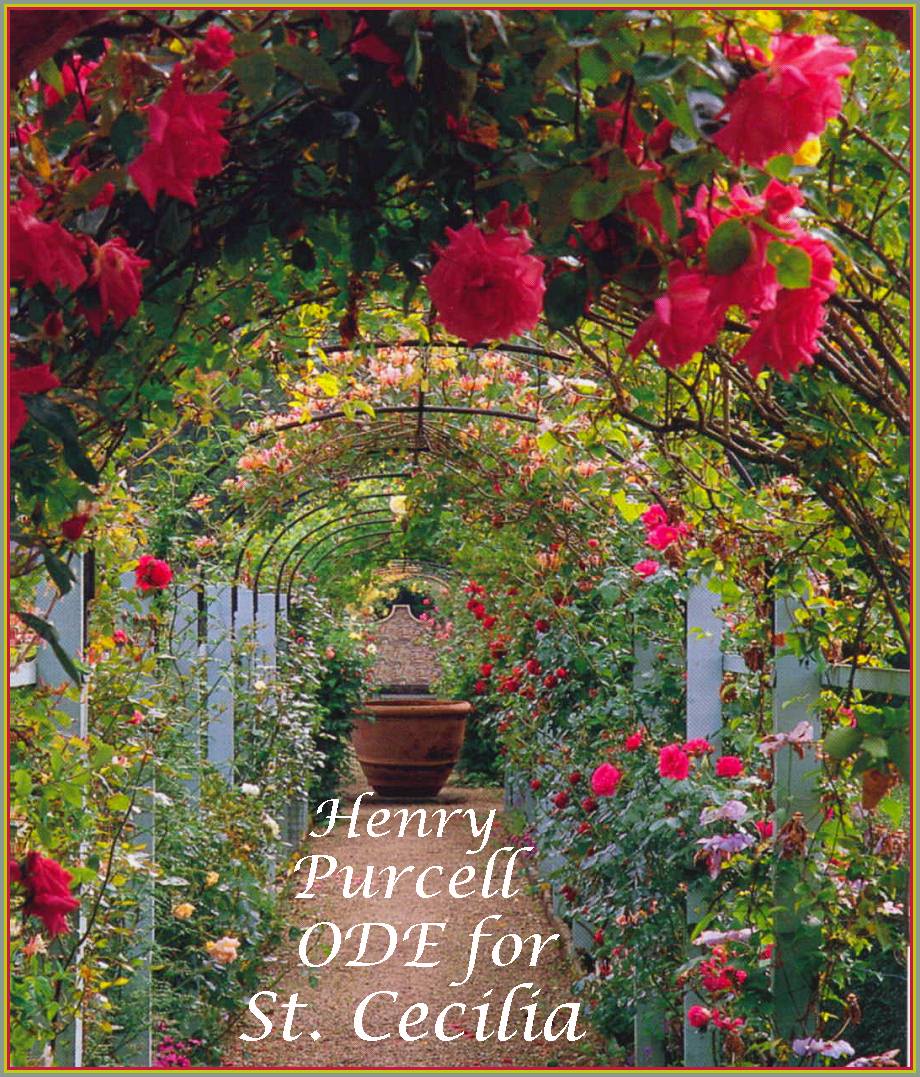
 |
|
BMC 40
Henry PURCELL (1659-1695)
Ode for St. Cecilia's Day - 1692
Songs & Harpsichord Pieces - Alfred Deller, and George Malcolm, Goff harpsichord
5: "I Attempt from Love's Sickness to Fly" from The Indian Queen (1695)- Alfred Deller
Total Time: 79:37
|
Henry Purcell reacted to and reflected politics and political history perhaps more than any other baroque composer. In 1649 the running battle between Parliament and Monarchy for legislative supremacy had come to a head, resulting in the public execution of King Charles I. For ten years thereafter the country suffered under Cromwell's military republic and near-dictatorship. Purcell was born in 1659, the year before George Monck restored parliament and the monarchy under Charles II. With the Restoration and renewal of musical activities both in and out of Court, music was to flourish again, and Purcell was able to participate to the full in this period of renewed growth. As the son of a musician at Court, a chorister at the Chapel Royal, and the holder of continuing royal appointments until his death, Purcell worked in Westminster for three different Kings over twenty-five years.
In 1683 a group of gentlemen amateurs and professional musicians started a "Musical Society" in London to celebrate the "Festival of St. Cecilia, a great patroness of music" on November 22nd. They asked Henry Purcell, then only 24, to be the first to write an Ode for their festivals; this Ode, Welcome to All the Pleasures, can be heard on our previous disc, BMC 39. Contrast this with the present Ode for St Cecilia, composed in 1692. Here we have a Purcell greatly matured and confident, already foreshadowing Handel. The text of this Ode is a poem by Nicholas Brady, Chaplain to the Queen. Following the Opening Chorus, each instrument is praised in turn - the flutes, the airy violins, the organ, trumpets and drums, and so on. In the penultimate duet, the instruments individually praised may "contest among themselves which is best" - it is for St Cecilia to bring them all together in the grand final chorus which ends what must surely be one of Purcell's finest works. This is a truly magnificent performance. The soloists and choir are in fine form, the conductor, Sir Michael Tippett, chooses tempi each of which perfectly suits the mood and musical content of each piece. the recording captures all the musical components clearly and in perfect balance. We complete our disc with a short program of Songs given by Alfred Deller, alternating with harpsichord pieces performed by George Malcolm, Goff harpsichord. The harpsichord pieces, except for the Hornpipe, are taken from "Musick's Handmaid".
It is hardly necessary to add that throughout this splendid disc the art and mastery of Alfred Deller, arguably the world's greatest counter-tenor and renowned performer of Purcell and his period, reigns supreme!
|